Hello, my name is Sarah and I am Programme Manager for our NHS West Yorkshire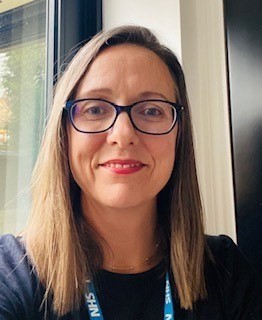 Integrated Care Board Antimicrobial Resistance (AMR) Programme.
Integrated Care Board Antimicrobial Resistance (AMR) Programme.
“It is estimated that without preventative measures, by 2050 AMR could potentially become the world’s primary cause of death”. World Health Organisation.
As we head into winter, and the inevitable pressures this brings, I am aware that it can be hard to think about issues like AMR that we cannot see, as they feel less of an ‘immediate’ threat. As the NHS faces much greater pressure, both in the community and in secondary care, topics like AMR might not feel like they are top of your priority list of concerns. However, perhaps this is the perfect time – a reminder of the challenges of infection prevention and control as we begin to see outbreaks of infectious diseases such as norovirus (winter vomiting) and influenza, alongside many other respiratory system diseases including Covid-19 and seasonal illnesses.
So, as you read today, I encourage you all to think about how actions to mitigate AMR might support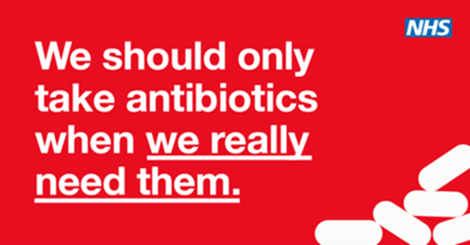 your work, our winter resilience plans, and our West Yorkshire community.
your work, our winter resilience plans, and our West Yorkshire community.
What is AMR?
My first myth buster – AMR isn’t only about antibiotics. Antimicrobials are medicines used to prevent and treat infections in humans, animals and plants caused by microbes, and there are 4 main types: antibiotics (bacteria), antivirals (viruses), antiparasitic (parasites) and antifungals (fungal infections). The availability of these drugs has changed the way we deliver healthcare today – they are a wonderful and precious commodity. However, their misuse and overuse has led to the development of drug-resistant microbes, making everyday infections potentially deadly.
A far away threat?
Like climate change, most people agree that AMR is happening and are aware that it will significantly affect future generations. But many feel that is something happening to people and places far away; or perhaps that it is less relevant to their lives and are unclear about how it will affect themselves personally.
How does it affect me?
Well, perhaps you might have an infection that requires antimicrobial treatment like an antibiotic; however, there is a possibility that it might not be effective. Consequently, you might be prescribed another prescription which could also prove ineffective. Ultimately, there is a chance that no drug will be effective in treating your condition. This is what happens when microbes develop resistance to drugs designed to kill them. Imagine a healthcare system without drugs such as antibiotics or antivirals. This would put modern medicine at risk and make everyday infections deadly.
We must act now
The World Health Organisation have declared AMR one of the most urgent global public health threats facing humanity; more than 700,000 people die every year because they have become infected with microbes that have become resistant to most known antimicrobial drugs. Every year 5 million people die of infection caused by resistant microorganisms.
What is important to us?
We all do what we do, to improve outcomes for our people. It is our responsibility to protect our citizens, the environment, and the efficacy of drugs like antibiotics. AMR will challenge all aspects of healthcare and the core values and purpose of Integrated Care Systems. We could see a shift between treating disease to managing symptoms. We have a critical window of opportunity to act now, to avoid going back to a time when simple infections were deadly; where surgeries were too risky to perform, and stigma surrounded communicable disease.
Taking local action
At the heart of our integrated care strategy is our agreed vision – those 10 big ambitions that will help all people in West Yorkshire live well and stay as healthy as possible; and “Reduction of AMR” is one of them. Our challenge was to develop a programme that made AMR & Infection Prevention central to our integrated care system core functionality; and design a strategy that reflects the ICS mission to reduce inequalities and manage unwarranted variations in care.
Which brings to myth buster two – we cannot simply use less antibiotics. Antimicrobials save lives; it is untreatable infections that kill people. Therefore, our strategy needed to consider all aspects of disease management - from infection prevention, diagnosis, investigation, and source control to effective and timely treatment.
Our strategy focuses on protection – protecting the environment, protecting our citizens, and protecting antibiotics with appropriate prescribing (not always less), so that they will be there for us in the future. Our AMR steering group is made up of professionals from across the system working in healthcare, academia and research with the passion, motivation, and mandate to drive change forward. We think about how delivery of pathway improvements could be approached at scale, how we can take a one health approach to work with organisations outside of the statutory sector, and how we take action to deliver the goals set out in the UKs National Action Plan whilst remaining focused on our West Yorkshire priorities.
Preventing infection
When hospitals are stretched and at capacity, we do not want to be closing beds or wards to admissions due to infection. In addition, many of our beds are taken up with patients medically fit for discharge. Provided their care can be managed, we want to help those people get back to their homes. However, there is a lot of anxiety about accepting people back into residential care with infection (or indeed allowing people prior to admission, to remain in their homes). We are therefore undertaking several projects this winter to enable effective management of infection. From the earlier diagnosis and treatment of influenza; to supporting people with D&V to receive subcutaneous fluids to prevent dehydration. And additionally help our social care providers and our citizens themselves to recognise and take appropriate action to signs of deterioration.
How do we change behaviour
Changing behaviour is not as simple as educating patients or asking health professionals to prescribe fewer antibiotics. It requires a holistic approach that includes protecting the efficacy and availability of existing medicines while seeking innovative solutions. Engaging and working with our communities, especially those most affected by AMR, is crucial. I was lucky enough to take part in the second integrate care system improvement forum recently, where the theme was focused on co-production: learning from our WY Co-Production Group on how we can work with our communities on development of pathways and learning from lived experience. As Myron Rogers says – “people own what they help create”; this is essential if we want the resources, pathways, and tools we create to be effective.
We also need to talk about AMR and climate change
Did you know that Climate change exacerbates the AMR crisis. Higher temperatures promote the growth and spread of antibiotic-resistant bacteria, while extreme weather events, overload or reduce sanitation; increasing waterborne diseases and propagate antibiotic resistance through sewage. Increased rainfall leads to higher levels of pollutants in water, promoting the production of antibiotic resistance genes. And as the shared environment for humans and animals increasingly overlaps; so, does the likelihood of pathogen transmission and resistance between the environment, humans, and animals.
So, what is the answer? The bigger picture.
We need to prevent , manage, and respond to AMR. From vaccination of humans and animals against AMR pathogens to sensors that detect AMR in wastewater and farm run-off into the environment. Crops could be designed that are resistant to pathogens, antimicrobial surfaces in our homes as well as rapid testing and virtual wards for keeping people out of hospitals and devices that monitor and predict early signs of deterioration.
Our system
As a system we are continuing to build relationships and networks, so we can do more joined-up working on AMR between primary care and providers in public health, acute care, community services, mental health, out-of-hour GP collaboratives, dental providers, and education. This is likely to include further exploration into the wider determinants of health, and embedding action to ensure that our citizens and healthcare professionals recognise the environmental impact of antimicrobials and take action to reduce carbon footprint. Have a look at our developing AMR webpage and view our AMR Animations!
“The goal of containing and controlling AMR by 2040 is ambitious, complex and will require much collaboration across all professions and sectors.
Thank you for reading. Could I please encourage you to think about how AMR might affect you - your work and the people you love. There are things we can all do to turn our agreed ambitions to action and create a positive vision for a brighter future for us to live well and stay as healthy as possible together.
Wishing you a wonderful, restful weekend,
Sarah


 in October we brought together the ten West Yorkshire hospices, the West Yorkshire Health and Care Partnership’s Palliative and End of Life Care (PEoLC) programme, and colleagues across the area.
in October we brought together the ten West Yorkshire hospices, the West Yorkshire Health and Care Partnership’s Palliative and End of Life Care (PEoLC) programme, and colleagues across the area.

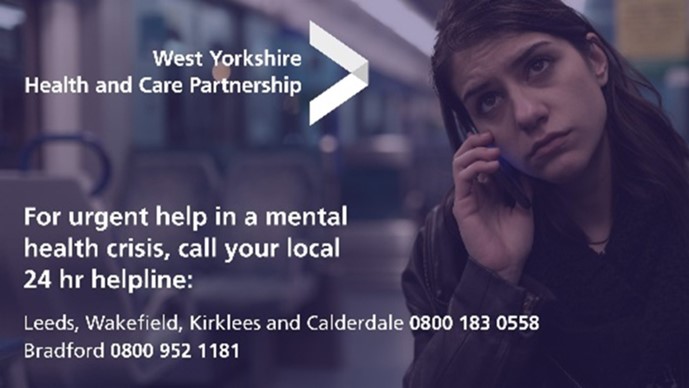
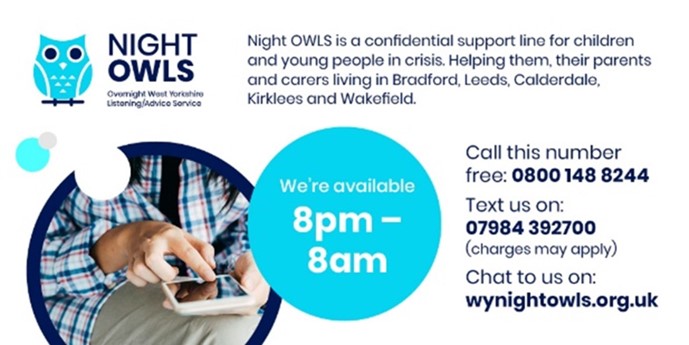

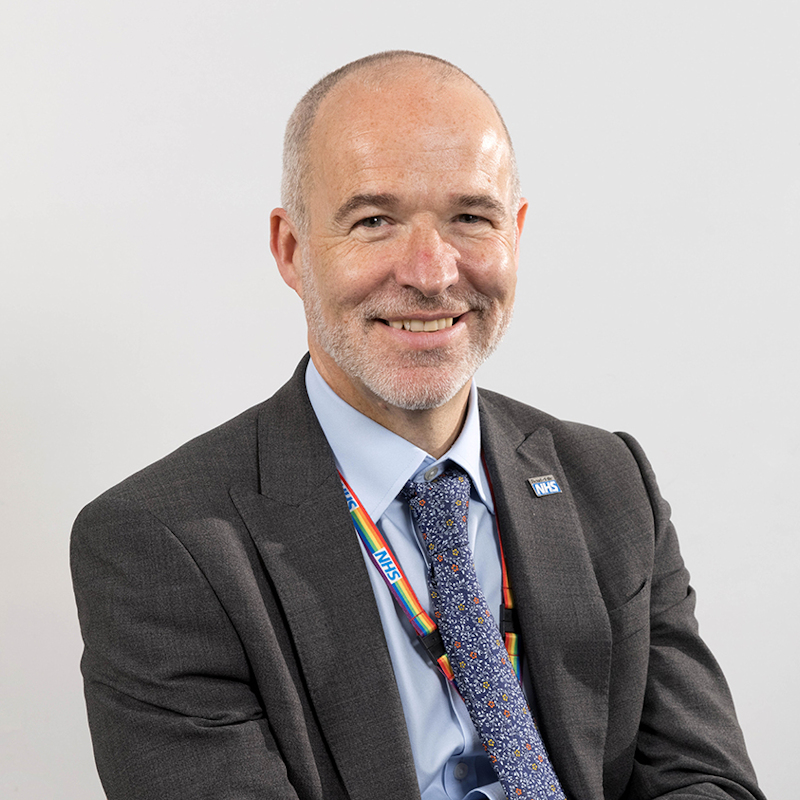 and Rob Webster, CEO Lead for WY HCP were included as commissioners, West Yorkshire plans to build on the achievements of the Creative New Deal. Additionally, it will hold the regional arm of the National Centre of Creative Health. This will mean tailored creative courses to enhance wellbeing are part of the offer, with people of all ages benefiting – from improving the experience for young people staying in hospitals, to using dance as a way of combating isolation felt by older people.
and Rob Webster, CEO Lead for WY HCP were included as commissioners, West Yorkshire plans to build on the achievements of the Creative New Deal. Additionally, it will hold the regional arm of the National Centre of Creative Health. This will mean tailored creative courses to enhance wellbeing are part of the offer, with people of all ages benefiting – from improving the experience for young people staying in hospitals, to using dance as a way of combating isolation felt by older people.